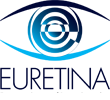The European Medicines Agency Committee for Medicinal Products for Human Use (CHMP) have announced a positive opinion for the granting of a marketing authorisation for the medicinal product “LYTENAVA” (bevacizumab gamma), intended for treatment of neovascular (wet) age-related macular degeneration (nAMD). The product (sponsored by Outlook Therapeutics Ltd.) will be described in the summary of product characteristics (SmPC), which will be published in the European public assessment report (EPAR) and made available in all official European Union languages after the marketing authorisation has been granted by the European Commission. LYTENAVA, indicated in adults for treatment of neovascular (wet) age-related macular degeneration (nAMD), will be available as 25mg/ml solution for injection, a humanised monoclonal antibody (ATC code: S01LA08) that binds to the vascular endothelial growth factor (VEGF) and prevents its activity.
LYTENAVA is an investigational ophthalmic formulation of bevacizumab under development as an intravitreal injection for the treatment of wet AMD and other retinal diseases. According to Outlook Therapeutics, “because no FDA or European Commission approved ophthalmic formulations of bevacizumab are available currently, clinicians wishing to treat retinal patients with bevacizumab have had to use repackaged IV bevacizumab provided by compounding pharmacies—products that have known risks of contamination and inconsistent potency and availability”. As a recombinant humanized monoclonal antibody (mAb), bevacizumab gamma selectively binds with high affinity to all isoforms of human vascular endothelial growth factor (VEGF) and neutralizes VEGF’s biologic activity through a steric blocking of the binding of VEGF to its receptors Flt-1 (VEGFR-1) and KDR (VEGFR-2) on the surface of endothelial cells. Following intravitreal injection, the binding of bevacizumab gamma to VEGF prevents the interaction of VEGF with its receptors on the surface of endothelial cells, reducing endothelial cell proliferation, vascular leakage, and new blood vessel formation in the retina. The sponsor showed that results of three clinical trials, NORSE ONE, NORSE TWO, and NORSE THREE, presented a “highly statistically significant and clinically meaningful primary efficacy data” on the ocular formulation. The company stated that NORSE TWO, which enrolled 228 participants at 39 clinical trial sites across the United States, showed that 41.7% of participants gained at least 15 letters of best corrected visual acuity (BCVA) after 12 months treatment.
According to Outlook Therapeutics, the CHMP positive opinion for LYTENAVA represents a significant milestone in the treatment of wet AMD in the EU. Russell Trenary, President and Chief Executive Officer commented that, “[w]e are proud to be one step closer to bringing to the EU market the first and only on-label, ophthalmic bevacizumab for the treatment of wet AMD, if approved”.
Fig. 1. Russell Trenary III, President & Chief Executive Officer, Outlook Therapeutics Ltd., NASDAQ:OTLK.
The company additionally stated that “in comparison, the currently licensed ranibizumab (Lucentis, Novartis) achieved this primary endpoint for 23% of patients. A mean change in BCVA was observed with 5.8 letters on ranibizumab vs 11.2 letters on bevacizumab”. Reporting the results in 2021, Firas Rahhal, MD, associate clinical professor of ophthalmology at UCLA School of Medicine and a NORSE TWO investigator, said that the clinically relevant results, most notably the 41% of patients who gained 3 lines of vision, were “very exciting for the retina community.”

